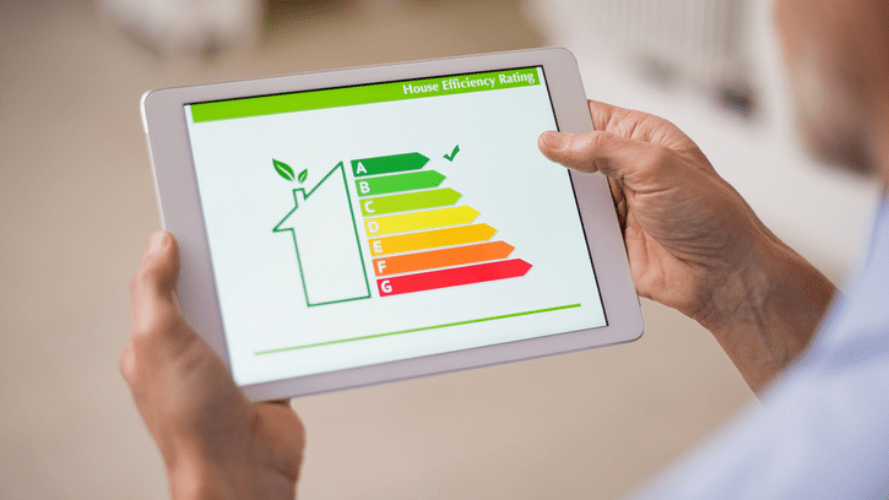MEES, which was officially implemented on April 1st 2018, means that it is illegal for landlords to let a home to new or existing tenants if it has an Energy Performance Certificate (EPC) rating of lower than an E.
As part of an attempt to lessen the country's environmental impact, there are also plans to raise the minimum to an EPC rating of C in 2025, but for now, every rental property should be an E or above.
The rules benefit the tenants living in the properties; however, it has been costly for some landlords to implement changes to improve the EPC rating.
How does this affect me as a tenant?
The rules aim to drive up standards and energy efficiency in the private rented sector, ensuring all rental homes are fit for purpose and as environmentally friendly as possible.
Your landlord now must ensure your home is up to the required standards, and it’s in your interests to take action if this is not the case.
Energy efficient homes mean cheaper bills
A home that scores highly on energy efficiency will lead to cheaper bills for you as energy wastage is kept to a minimum.
While landlords have been responding to increased demand for better insulated and more energy efficient properties, not all are at the required level.
You’ll be able to tell whether your home has a good enough energy rating as your landlord should provide you with a copy of the EPC when you move into a rental home.
It also pays in other ways for your home to be energy efficient – with well‐insulated walls, for example, potentially saving you up to £180 a year, while research has suggested that poorly‐insulated roofs and walls account for around £500 million in wasted energy each year.
Your landlord can take steps to make your home more energy efficient, including installing double glazing, loft and cavity wall insulation and boiler upgrades.
Cheaper, more basic steps which you could enact include draught excluders, getting to grips with the heating system to ensure you are using it effectively, shutting all doors behind you when you leave a room, solar shading and using appliances such as eco‐friendly kettles.
Smart meters are also a great way of enabling you to monitor your energy efficiency and save you money, some energy providers will fit one at your property for free, but you should check with your landlord before enquiring about this.
What do smart meters provide?
- More accurate bills
- A better understanding of energy usage
- The prospect of more innovative energy tariffs
- An easy way to monitor energy consumption
Can tenants request energy efficiency improvements?
“Yes” is the simple answer to that question. As of April 1st 2016, tenants were given the right to request consent from their landlords to carry out energy efficiency improvements to privately rented properties.
A landlord can only refuse consent if there is a compelling reason to do so.
There are a few caveats, though. The responsibility for funding the work falls upon the tenant, and landlords should be met with no upfront costs unless they have agreed to help out.
With MEES in mind, landlords may be willing to contribute to bringing their homes up to scratch or improve their ratings on the EPC scale. There is a chance that the minimum band could go up again in future, so it pays for landlords to improve the energy efficiency of their homes as much as possible, in turn increasing their future appeal to tenants.
Rising number of family renters need suitable homes
One demographic which might be most concerned about the green credentials of their rental home – and the potential for lower energy bills – is family tenants. This group is growing in number as each year passes.
The UK’s renting boom is being driven by a surge in 35‐44-year-olds renting, priced out of buying due to high house prices and deposits.
This demographic, which is the most likely to have young children or be thinking about starting a family soon, is now far more likely to rent for the long term rather than buying a home.
As one of an increasing number of renters, it is therefore in your interest – and your landlord’s interest – to have a home that performs well when it comes to energy efficiency, from both a monetary and environmentally‐conscious point of view.
Enjoying our content?
Get the latest letting news, views and tips from HomeLet straight to your inbox.

